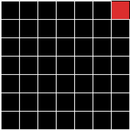
Starting on the second day of Passover, and continuing until the holiday of Shavuot, we count the days and weeks of the Omer. The mitzvah originates in the Torah (Leviticus 23:15-16) and was originally associated in ancient times with the barley growing season and harvest. A full seven weeks were counted until barley sheaves (Omer in Hebrew) were brought to the Temple as an offering.
Throughout Jewish history, the Counting of the Omer has gone through many different interpretations and meanings. The rabbis associated this time of year with a plague that was said to have struck the students of Rabbi Akiva in the second century C.E. The "plague" may actually have been a euphemism for the unsuccessful Bar Kochba rebellion against the Romans in which more than a half million Jews were killed.
In the Jewish mystical tradition, the Counting of the Omer was reimagined as a period of spiritual purification in preparation for the revelation of the Torah on Shavuot. According to this interpretation, each week of the Counting of the Omer is associated with one of the seven lower sefirot. In Kabalah, the ten sefrot are divine emanations. Each of them can be compared to a vessel that contains an aspect of the shefa (flow) of God's presence that connects heaven and earth.
The three highest sefirot – Keter, Chochma and Binah – correspond to divine qualities that are above and prior to any equivalent human quality. However, the seven lower sefirot are reflected in the spiritual qualities and capacities we see in human beings:
• Chesed. Love, compassion and forgiveness.
• Gevurah. Strength, discipline, justice.
• Tiferet. Beauty, balance, equanimity.
• Netzach. Eternity, endurance.
• Hod. Splendor, humility.
• Yesod. Foundation, connection, grounding.
• Malchut. Kingship, nobility, aspiration.
Here is a version of the traditional diagram of the ten sefirot.
Each day of each week is also associated with one of the seven lower sefirot, making each day of the Counting of the Omer a day for contemplating a unique pairing of qualities and spiritual capacities.
The first day of the Counting of the Omer begins on Tuesday night. It is the day of Chesed within Chesed, love within love. On this day, which is also the second day of Passover, I am thinking about the people in my life who I love – my family, friends and members of my community. I think about the way I love them and how to make that love shine a bit brighter. I consider how sometimes other things get in the way of loving people the way that I want to love them – anger, obstinance, wanting to be "right." On this first day of the Counting of the Omer, I make a commitment to do a better job of loving the people I care about by letting love be love. I think about being better at loving others by being better at loving myself and exercising compassion for myself for my faults and shortcomings.
May this be a day for you that makes your love shine as brightly as it can.

 RSS Feed
RSS Feed
